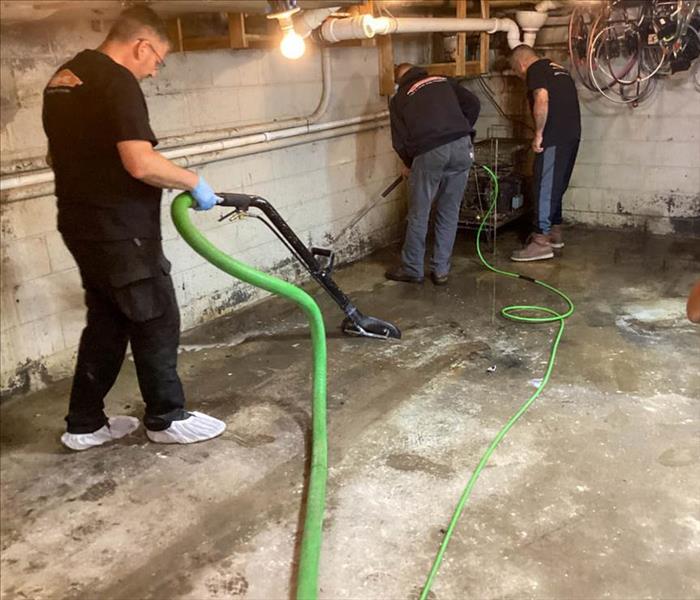Safely Disposing of Water-Damaged Materials and Debris in Grosse Pointe
10/8/2023 (Permalink)
Water damage can strike when you least expect it, and when it does, addressing the aftermath is crucial for a swift recovery. One essential aspect of the restoration process is the safe disposal of water-damaged materials and debris. In this blog, we'll guide you through the proper methods and precautions to ensure the safe removal and disposal of materials affected by water damage.
Why Proper Disposal Matters
Health and Safety: Water-damaged materials can harbor harmful bacteria, mold, and contaminants. Safe disposal is essential to protect your health and the well-being of those involved in the cleanup.
Preventing Mold: Mold can quickly develop on wet materials, spreading to other parts of your property. Proper disposal reduces the risk of mold infestation.
Environmental Responsibility: Disposing of materials improperly can harm the environment. Responsible disposal methods are essential for preserving Detroit's natural beauty.
Safe Disposal Steps
Safety First: Before starting the disposal process, ensure your safety by wearing appropriate protective gear, such as gloves, masks, and eye protection.
Assessment: Begin by assessing the extent of water damage. Identify materials that are beyond repair and need disposal.
Isolate and Remove: Isolate damaged materials from unaffected ones to prevent further contamination. Remove damaged items carefully, avoiding unnecessary disturbance.
Proper Packing: Double-bag or wrap the damaged materials securely to prevent leakage during transportation.
Local Regulations: Research Grosse Pointe’s regulations for waste disposal. Different materials may have specific disposal requirements.
Hazardous Waste: If any materials are considered hazardous, such as asbestos-containing materials, follow strict guidelines for their disposal to comply with safety and environmental regulations.
Licensed Disposal Services: Consider hiring licensed disposal services for larger-scale cleanup projects. These professionals are trained in safe disposal methods.
Remember to maintain records of what you dispose of, including photographs, for insurance claims and future reference.
Recycling and Donation
Whenever possible, consider recycling or donating salvageable items. This not only reduces landfill waste but also benefits those in need. Organizations in Grosse Pointe may accept gently used items, helping the community while minimizing environmental impact.
Proper disposal of water-damaged materials and debris is a vital step in the aftermath of water damage. It protects health, prevents mold growth, and ensures environmental responsibility. By following the steps outlined here and adhering to local regulations, you can safely and responsibly manage the disposal process. If you find yourself dealing with extensive water damage, remember that SERVPRO® of Grosse Pointe is here to assist you with professional cleanup and restoration services. We're committed to helping you restore your property and preserve Grosse Pointe’s natural charm.






 24/7 Emergency Service
24/7 Emergency Service
